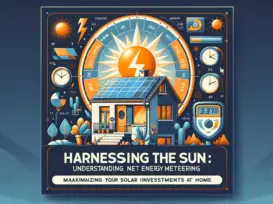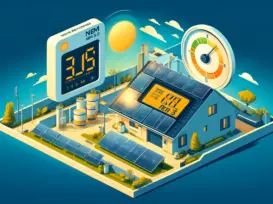Grus Home Energy - Renewable Energy Incentives
Maximizing the Benefits of Renewable Energy Incentives
Renewable energy incentives play a crucial role in promoting the adoption of clean and sustainable energy sources. These incentives can come in various forms, such as tax credits, grants, rebates, and net metering programs, to help offset the initial costs of installing renewable energy systems. By offering financial incentives, governments aim to accelerate the transition to renewable energy and reduce greenhouse gas emissions to combat climate change.
One of the key benefits of renewable energy incentives is their ability to make clean energy more affordable and accessible to a wider range of consumers. By reducing the upfront costs of installing solar panels, wind turbines, or geothermal systems, incentives can help homeowners, businesses, and communities save money on their energy bills in the long run. This financial assistance can make the difference between someone being able to afford a renewable energy system or not.
In addition to making renewable energy more cost-effective, incentives also stimulate economic growth and create jobs in the clean energy sector. As more people invest in renewable energy technologies, there is an increasing demand for skilled workers to design, install, and maintain these systems. This not only boosts local economies but also helps to diversify the energy sector and reduce dependence on fossil fuels.
Furthermore, renewable energy incentives can help to improve energy security and resilience by decentralizing power generation. By generating electricity on-site or locally, individuals and communities are less vulnerable to disruptions in the centralized grid caused by extreme weather events or cyber-attacks. This distributed energy generation can enhance grid stability, reduce transmission losses, and increase overall system efficiency.
To maximize the benefits of renewable energy incentives, it is essential to design and implement effective policies that are tailored to the specific needs and circumstances of each region. This may involve targeting incentives towards underserved communities, low-income households, or areas with high renewable energy potential. It is also important to periodically review and update incentive programs to ensure they remain relevant and impactful in a rapidly evolving energy landscape.
Moreover, educating the public about the benefits of renewable energy and the availability of incentives is crucial for increasing awareness and promoting uptake. Outreach campaigns, workshops, and information sessions can help to dispel myths, address misconceptions, and empower individuals to make informed decisions about transitioning to clean energy sources.
In conclusion, renewable energy incentives play a vital role in accelerating the transition to a more sustainable and low-carbon energy future. By making clean energy more affordable, creating jobs, improving energy security, and boosting local economies, incentives offer a range of benefits that extend far beyond reducing greenhouse gas emissions. To maximize the impact of these incentives, it is important to implement well-designed policies, target underserved communities, and raise awareness about the opportunities and advantages of renewable energy technologies.
©2025 All Rights Reserved. Grus IoT Co.,Ltd.

